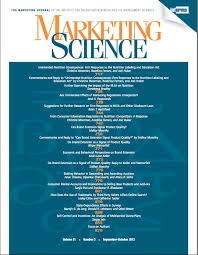
Jacobs, B., Donkers, B. and Fok, D. (2016). Model-based Purchase Predictions for Large Assortments Marketing Science, 35(3):389--404.
-
Affiliated authors
-
Publication year2016
-
JournalMarketing Science
An accurate prediction of what a customer will purchase next is of paramount importance to successful online retailing. In practice, customer purchase history data is readily available to make such predictions, sometimes complemented with customer characteristics. Given the large product assortments maintained by online retailers, scalability of the prediction method is just as important as its accuracy. We study two classes of models that use such data to predict what a customer will buy next, i.e., a novel approach that uses latent Dirichlet allocation (LDA), and mixtures of Dirichlet-Multinomials (MDM). A key benefit of a model-based approach is the potential to accommodate observed customer heterogeneity through the inclusion of predictor variables. We show that LDA can be extended in this direction while retaining its scalability. We apply the models to purchase data from an online retailer and contrast their predictive performance with that of a collaborative filter and a discrete choice model. Both LDA and MDM outperform the other methods. Moreover, LDA attains performance similar to that of MDM while being far more scalable, rendering it a promising approach to purchase prediction in large product assortments.